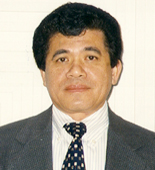|
US Immigration
|
|
|
|
|
Posted 6/01/2009 |
|
|
|
LEGAL NOTES /
By REUBEN S. SEGURITAN |
|
Easing Backlogs in Family Visas
|
Reuniting families is once again at the forefront of immigration legislation.
The proposed bill, The Reuniting Families Act, was reintroduced in Congress last May 20 by U.S. Senators Robert Menendez (D-NJ), Kirsten Gillibrand (D-NY), Edward Kennedy (D-MA) and Charles Schumer (D-NY).
This bill seeks to reunite U.S. citizens and lawful permanent residents with their families by reducing the wait times in family-based immigration, reclassifying certain family-based categories, increasing per country limits and reallocating and utilizing unused visas in categories where there are huge backlogs.
The waiting time for family-based visas now ranges from five to twenty three years. Spouses wait for over seven years while the adult children of U.S. citizens wait for about seventeen years. Visa applicants from the Philippines wait the most.
The priority given to family reunification recognizes family unity as a contributing factor in maintaining a stable community that supports the economy. As stated by Senator Menendez, legal immigrants work hard, pay taxes and create jobs and businesses. |
|
|
|
|
|
Senator Schumer added that families should not be made to suffer
prolonged separation due to the inefficient and outdated
immigration system.
As target actions to reduce the current wait times, several
measures are proposed.
|
|
|
The bill seeks to reclassify spouses and children
under the age of 21 of lawful permanent residents
(green card holders) to the immediate relative (IR)
category, thus, omitting the wait time. There is an
estimated 322,000 cases pending at this time.
It seeks to increase the per country immigration
limits from 7 to 10 percent of total admissions.
The problematic situation of widows, widowers and
orphans is addressed by allowing them to continue to
wait in line for a visa even after the death of the
sponsoring relative.
The proposal seeks to recapture the 400,000
family-sponsored and employment based visas that
went unused between 1992 and 2007 to be utilized for
pending cases.
|
 |
|
|
|
Stepchildren and biological children will be treated
equally by allowing stepchildren below 21 years old
to immigrate upon their parents’ marriage. The
current age limit is 18.
More importantly, it respects and recognizes the
contribution of Filipino World War II veterans by
reducing their children’s wait times for an
immigrant visa in order to rejoin them. This is of
vital importance since the Filipino war veterans are
aging and time is of the essence when it comes to
their dream of family reunification.
A related bill has recently been introduced in the
House last May 14 by Rep. Mazie Hirono of Hawaii.
Known as the Filipino Veterans Family Reunification
Act or H.R. 2412, it has nine co-sponsors and has
been referred to the House Judiciary Committee. This
bill would exempt the sons and daughters of Filipino
World War II veterans who were naturalized under the
Immigration Act of 1990 from the worldwide or
numerical limitation on immigrant visas
The Reuniting Families Act is a step in the right
direction considering that immigrants fuel the U.S.
economy through their hard work and
entrepreneurship. Senator Menendez, in support of
the bill, stated that that there are clear societal
and economic reasons for giving priority to family
reunification in immigration reforms and
legislation.
It is evident that immigrants make a variety of
economic, social and cultural contributions to the
United States throughout its history. By recognizing
the importance of the family and prioritizing those
with family-based petitions to be reunified with
their respective families, the U.S. provides a
stable foothold for these contributing members of
society.
|
REUBEN S. SEGURITAN
 has been practicing law for over 30 years and is included in the Marquis Who’s Who in American Law. A former law editor and professor, he is also the author of a book on immigrant experiences. He has spoken in international and national conventions and has been interviewed on radio and television, including the ABC Nightly News. He has participated in meetings with White House staff and the Immigration Commissioner to discuss immigration reforms. For his community service and advocacy, he has received numerous awards in the U.S. and abroad. For more information, you may log on to his website at www.seguritan.com or call (212) 695-5281
has been practicing law for over 30 years and is included in the Marquis Who’s Who in American Law. A former law editor and professor, he is also the author of a book on immigrant experiences. He has spoken in international and national conventions and has been interviewed on radio and television, including the ABC Nightly News. He has participated in meetings with White House staff and the Immigration Commissioner to discuss immigration reforms. For his community service and advocacy, he has received numerous awards in the U.S. and abroad. For more information, you may log on to his website at www.seguritan.com or call (212) 695-5281 |
|
|
|
|
|
|
|
|






 has been practicing law for over 30 years and is included in the Marquis Who’s Who in American Law. A former law editor and professor, he is also the author of a book on immigrant experiences. He has spoken in international and national conventions and has been interviewed on radio and television, including the ABC Nightly News. He has participated in meetings with White House staff and the Immigration Commissioner to discuss immigration reforms. For his community service and advocacy, he has received numerous awards in the U.S. and abroad. For more information, you may log on to his website at www.seguritan.com or call (212) 695-5281
has been practicing law for over 30 years and is included in the Marquis Who’s Who in American Law. A former law editor and professor, he is also the author of a book on immigrant experiences. He has spoken in international and national conventions and has been interviewed on radio and television, including the ABC Nightly News. He has participated in meetings with White House staff and the Immigration Commissioner to discuss immigration reforms. For his community service and advocacy, he has received numerous awards in the U.S. and abroad. For more information, you may log on to his website at www.seguritan.com or call (212) 695-5281